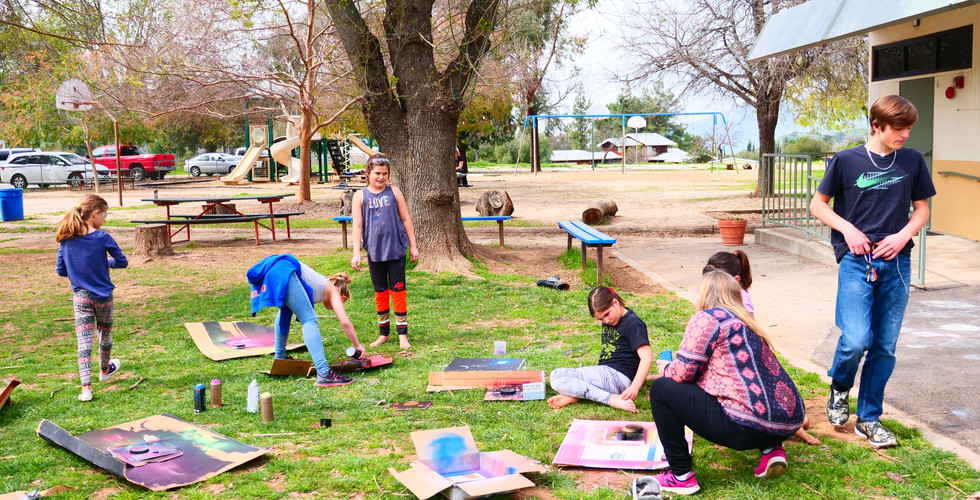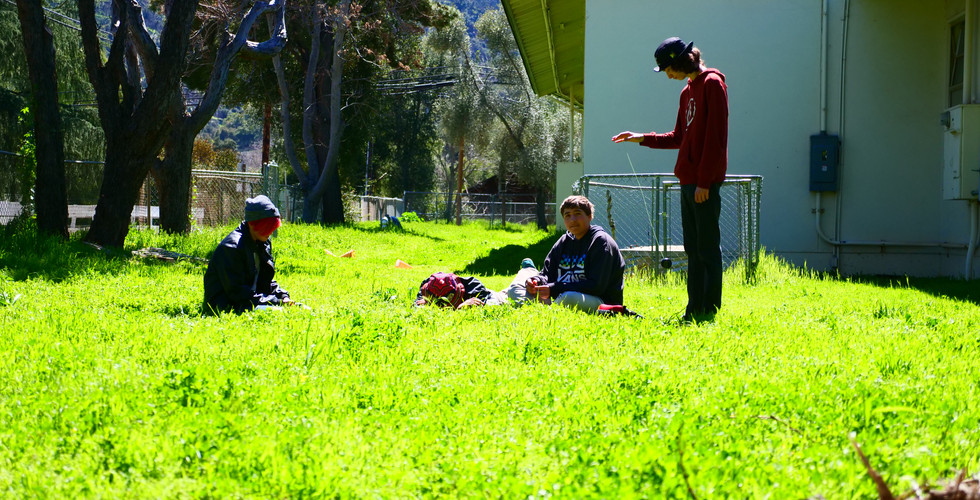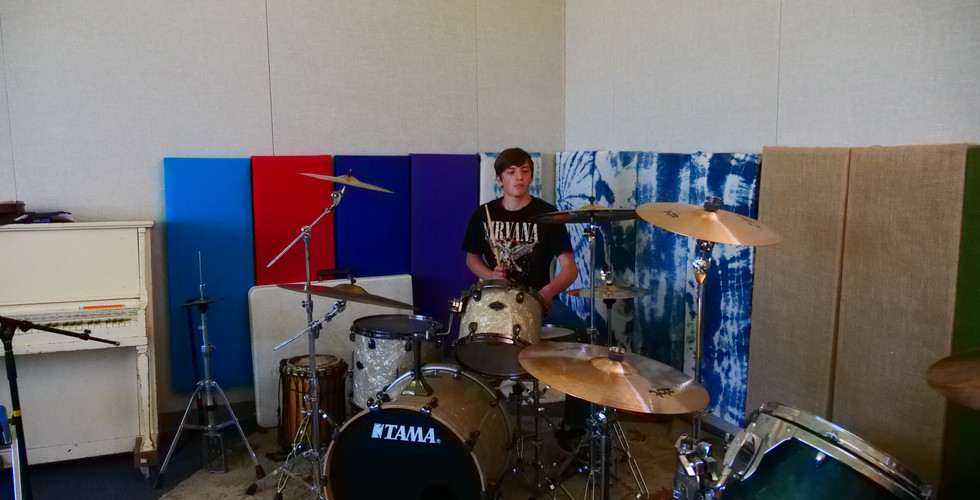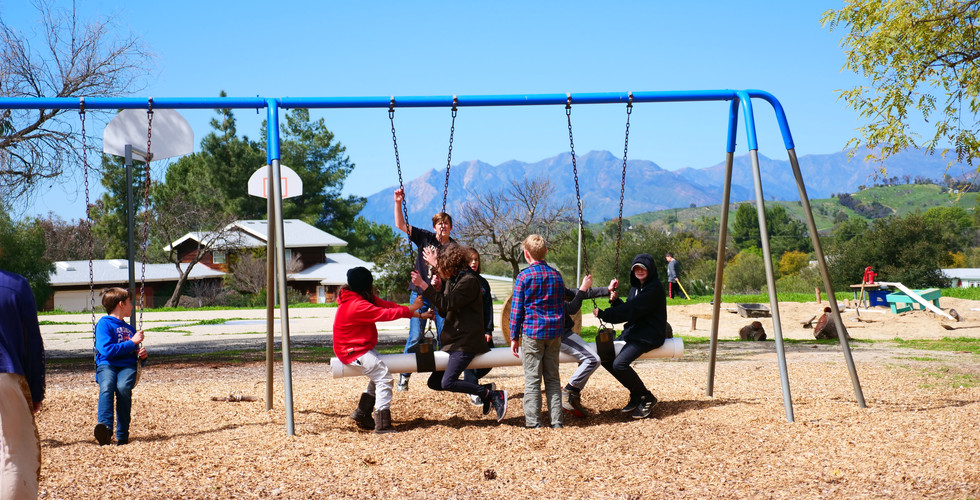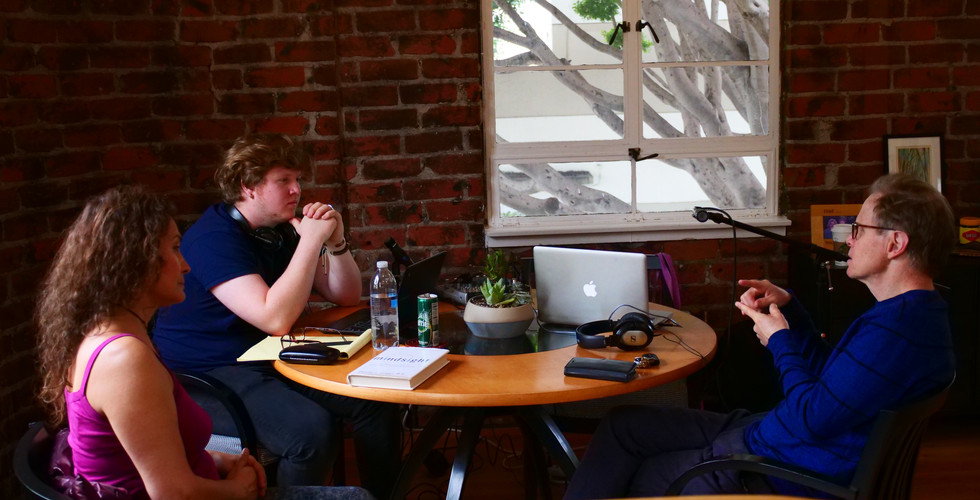March 2019 Monthly Messenger
- Jim Bailey, Founder & Director

- Apr 6, 2019
- 5 min read
Updated: Sep 24, 2020
Hello Rock Tree Sky Families,
Happy Spring!
We hope that you all enjoyed a fun filled and relaxing spring break.
Before departing for our two week break many of your kids expressed feelings that they would miss spending time at RTS.
And now that we are all back together it is clear that there is lots of excitement for generating more learning and creations during this final segment of our RTS year.
The following Monthly Messenger will include calendar updates for April, a link to a recent episode of our podcast (Through the Eyes of a Kid), the story of a collaborative act of self-directed democracy as witnessed during the month of March, and a parent education piece by child development specialist, Carol Castanon, on helping children feel safe during crisis.
As always Be Well and Stay Curious,
With love from the Rock Tree Sky Staff
Looking Towards April:
Saturday April 13: Parent discussion group 10am-12pm at the Summit School Campus.
Wednesday April 24: 12pm dismissal, Staff in-service.
Reflections on March:
A Story of Self-Directed Democracy
“Don’t-touch-the-ground-tag” is probably the most popular game that kids play at Rock Tree Sky.
“Don’t-touch-the-ground-tag” is a game that is entirely child created and child led. Adults do not intervene without invitation unless to provide safety reminders, nor do adults provide suggestions or rules for play.
The basic rules of play are this: “Don’t-touch-the-ground-tag” is played on a playground structure and as its name suggests, players must not touch the ground (meaning woodchips) during play. There are players who attempt to avoid touching the ground while also avoiding being tagged ‘it’ by the tagger.
As a play-worker I have witnessed many nuanced iterations and various rules of this game that have ebbed and flowed throughout months of play involving diverse groups of players. Kids of a variety of ages, sizes, and athletic prowess engage in “don’t-touch-the-ground-tag” and the rules and strategy of play change to reflect the players. Different loose parts have been added and taken away to aid players in not touching the ground. And different policies about which kids actually have permission to touch the ground in particular instances have been implemented.
Frequently, I have witnessed rules being negotiated between players as the game is being played. I have witnessed players pause play when a player falls or otherwise feels hurt, to check in with the child that is hurting. It has also been my experience as a witness that the point of playing “don’t-touch-the-ground-tag” is not to win. Instead children play for as long as feels fun for them and they move on when they want to.
I have also witnessed several other activities occurring on the playground structure by other kids while “don’t-touch-the-ground-tag” is being played by consenting players.
“Don’t-touch-the-ground-tag” is a game that I recognize as a living example of self-directed learning. As one learner wisely put it, “you learn your limits through playing. You learn how fast you can go, you learn what you can and can’t do.”
One day I was fortunate enough to have witnessed a democratic meeting that was initiated by a player as a mechanism for problem solving during a game of “don’t-touch-the-ground-tag.”
One afternoon, a disagreement of rules broke out amongst children at play. At the height of the argument one kid shouted “Let’s have a meeting, everyone stop we’re having a meeting!”
All of the kids that had been playing “don’t-touch-the-ground-tag” energetically marched over to a nearby picnic table and sat down on the benches and on the table top. About seven children were involved in total. At first, several kids were shouting at once, the energy around that table was palpable. There was a sense of urgency and deep care for what was to be discussed.
One of the older kids (the one who had called the meeting) raised his voice over the others and claimed “I have the talking stick!”
He was in fact holding a wooden stick which then become a tool for the remainder of the meeting as a means to regulate who had the attention of the group.
The kid said his piece about a rule that he was in favor of implementing.
His idea elicited response from many of the others - some in favor, some not. And discussion ensued. The talking stick was passed around to kids who wished to voice opinions and be heard.
Through the course of the meeting several proposals for rules were made. And decision making was made by a majority rule with a simple hand-raising vote.
The children also came to an agreement about what consequence would follow if anyone were to break a rule. If the rule was broken on purpose that person would become it. If the rule was broken on accident, it would be forgiven. And if someone who wasn’t at the meeting broke a rule it would be forgiven but the other players would tell that new player the rule so that they wouldn’t break it again.
The kids then voted to end the meeting and get back to playing.
As a mentor to these young people and a witness to their play and their engagement with this meeting, I felt filled with this sense affirmation that engagement with this learning environment is working. By that I mean that these kids are becoming the types of people that I want this world to be full of. These kids displayed the capacity to pause and talk through issues, to listen to each other and hear each other’s needs, to collaboratively brainstorm solutions, and to fairly make decisions. These kids did all of that without my direction - they saw that I was there witnessing them but they never turned to me for advice or support or approval of their process.
I was also filled with a sense of validation for the work that my co-mentors and myself do to create a culture where kids are empowered to engage with the democratic process in this way that is caring and solution oriented.
At Rock Tree Sky one of our core values is holding the accountability to maintain agreements to take care of ourselves, take care of others, and take care of the space.
We model collaborative problem solving, compassionate listening, and respect for others differences.
We also offer opportunities to engage with culture-committee meetings during which kids may bring concerns and proposals for new rules to a small group of individuals to discuss and problem solve around. And while not so many learners choose to engage in these culture-committee meetings, it is evident that simply having that as a part of our program influences our cultural practices.
Quotes from the Kids: Through the Eyes of a Kid
The following link is to the fourth episode of a podcast featuring interviews of Rock Tree Sky learners contemplating and describing their educational journeys.
This episode features the voice of RTS Learner Veda Kokatay and the musical stylings of RTS Teen Carter Young.
Please copy and paste the following link in your browser:
Parent Education
Every family will experience crisis at some point in time - those are the times to blanket one another in love and support. We all hope that having our children live through crisis will increase their resilience and empathy, their resourcefulness and sense of connectedness with their family and community. Crisis also has the potential to leave the emotional, mental, and physical scars of unhealed trauma. Often times, crisis will do some of both, shaping children and ourselves into the colorful, interconnected beings that we are. Carol Castanon, child development specialist, has shared an article on helping children feel safe during crisis that you may want to read over and bookmark to pull out whenever you find you or your community in crisis.
With love~




